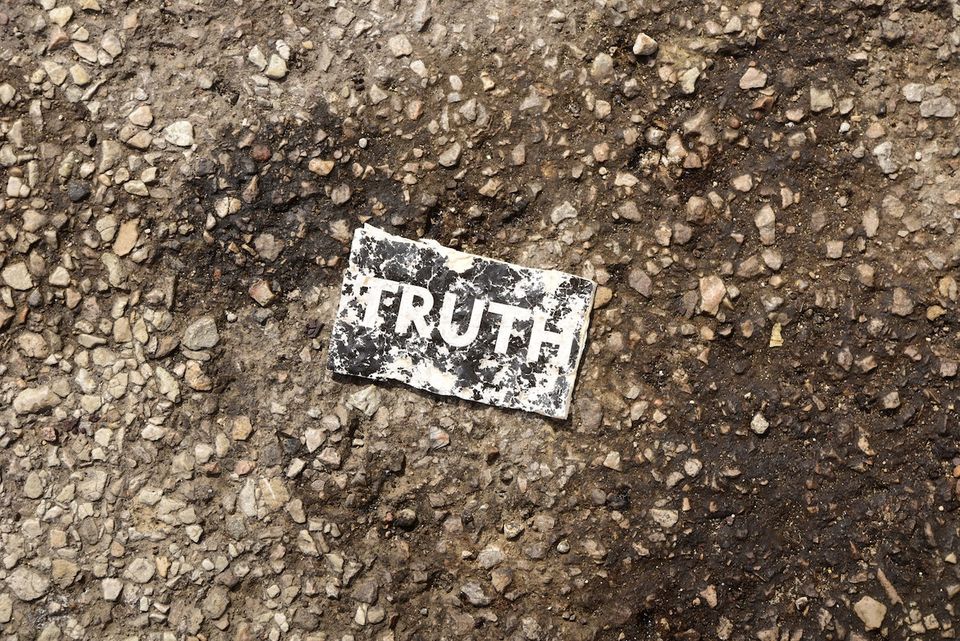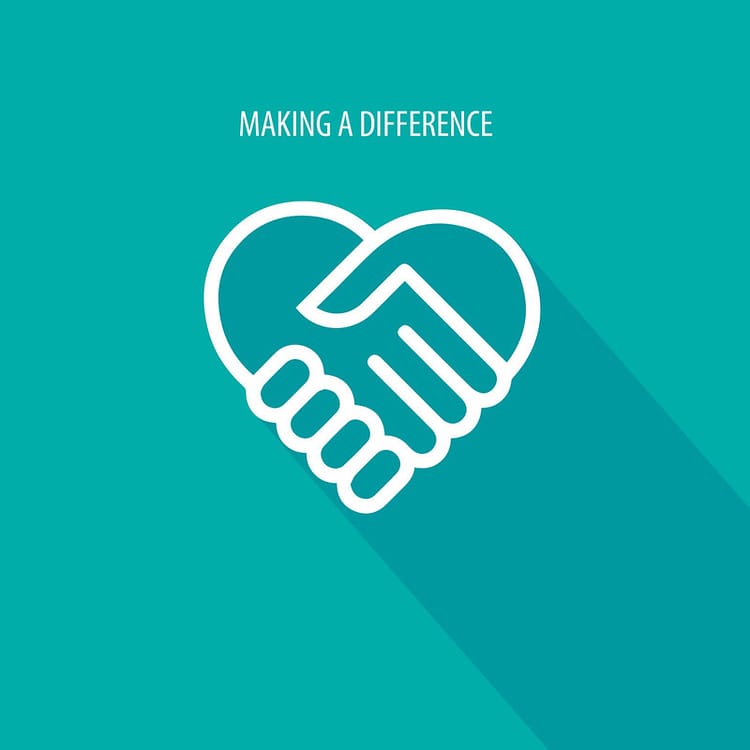Forget Affirmations, What You Need Are 'Statements of Self-Truth'

Why your personal truth and current reality kick sand in the face of positive thinking and affirmations.
In a recent coaching session, my client asked me to send instructions on how to craft his “statements of self-truth.”
He was telling me about using affirmations and trying to think positively. We had a discussion about how those words and actions are mostly meaningless because they don’t connect with the truth.
When you affirm, “I am rich, and powerful, and loveable” — an all-too-common affirmation — what reality does that connect with if you are currently not rich, or powerful, or loveable?
If you don’t feel self-love, your brain won’t believe that affirmation. If you’re $50K in debt, the reactive part of your brain will not feel safe about that level of debt, and your logical brain might — smartly — reject the affirmation because, well, it’s just not true.
In my client’s case, he was working with statements like, “I am a good person.” And, “I am lovable as a gay man.” I can tell you that those things are true about my client. Having worked with him for a while, he is a good person. And as a gay man, he is loveable and deserving of love.
The important question is, does he believe those self-statements? And will repeatedly saying empty platitudes improve his life? Maybe, but there is a much more effective, and truthful way of changing how you feel about yourself.
The truth is, we can improve who we are and how we feel about ourselves by accepting our current reality — our current truth — and building upon that truth. Accepting where you are doesn’t mean you have to settle there. It only means you recognize the truth of where you are.
Think of it this way. To build a house, you first dig to create the foundations that will support the structure. Call the foundation your grounding — that which makes you who you are. What goes on top of the foundation are the parts of you that show up in the world. And if you don’t like what you see and feel, you can always renovate!
Why Is This True About Me?
“I am a good person because…” is a different leading statement than simply saying, “I am a good person.” This allows you to tell yourself the truth about why are you a good person. To add to this, what can you say about your good nature that you are proud of?
“I am a lovable gay man because…” is also superior because it leads to expressing the qualities and character traits my client wants to highlight that he feels most certain about.
Whatever your statement of self-truth, asking “Why” or writing out a simple statement followed immediately with “because” will help you to get to the truth of who you are.
The INTENTION with statements of self-truth is to express what you know to be true.
This also means that you may struggle with being that person sometimes, but when you are, you are being the best version of yourself.
This is called embracing both the dark and the light that makes up who you are. I’m assuming that most of us prefer to focus on and embrace the lighter or positive side of our emotionality that improve our lives, and the lives of others.
We cannot ignore what we dislike about ourselves, we can only seek to be the better version of that aspect.
Let me share a few lines from my personal manifesto to explain what I mean.
I am thoughtful, contemplative, calm, and compassionate. I love learning and teaching. I seek to listen and understand before I respond.
I have struggled with being calm, compassionate, and understanding. But I embody those qualities and when I live them, I feel the most content and happy. In this case, I know the dark and can be easily inconsiderate and contentious, but I NEVER feel good about myself after the fact. I know this awareness of truth empowers me to do better for myself.
I am a deep thinker, a reader, a writer, and an author.
These are all true statements about myself. I have published articles going back years to back up this claim. But more importantly, this statement is a grounding truth about who I am, and how I express my purpose and potential. This statement supports the first one because I actively study and practice how to be more thoughtful, contemplative, and compassionate.
My purpose is to freely love who I am, to freely create the life I want, and to help others do the same.
This is my personal mission and it speaks to the gay shame I have endured. Because I have experienced gay shame, I write and speak about it often in the hope that I can help other gay men and queer people love themselves as well. Shame is not exclusive to any group of people, but the darkness I have experienced from gay shame shows me what it’s like to live in the potentiality of the light — self-love and unconditional self-acceptance.
Love Is Freedom and Freedom Is Love.
In the work I do as a coach, personal freedom means having prediction and response. All love starts with self-love. Thus, love is having prediction and response about the acceptance, connection, and care you receive as you move through life.
If you never feel love, you will never be free. That starts with knowing what is true about yourself, what you value, and what you believe in. So don’t cheat yourself with empty affirmations. Tell yourself your truth.





Member discussion